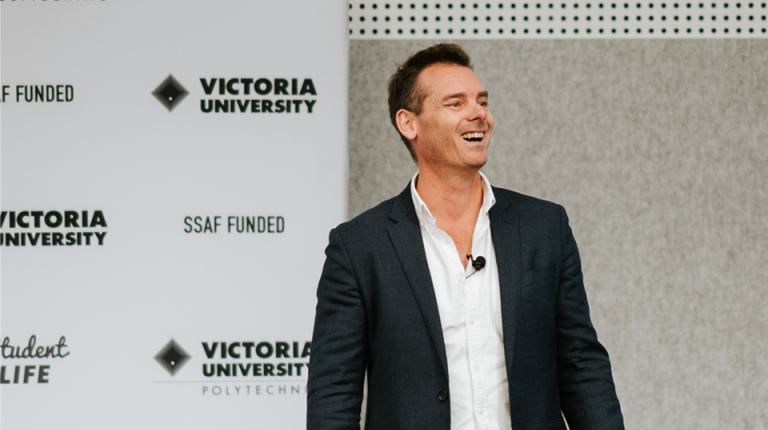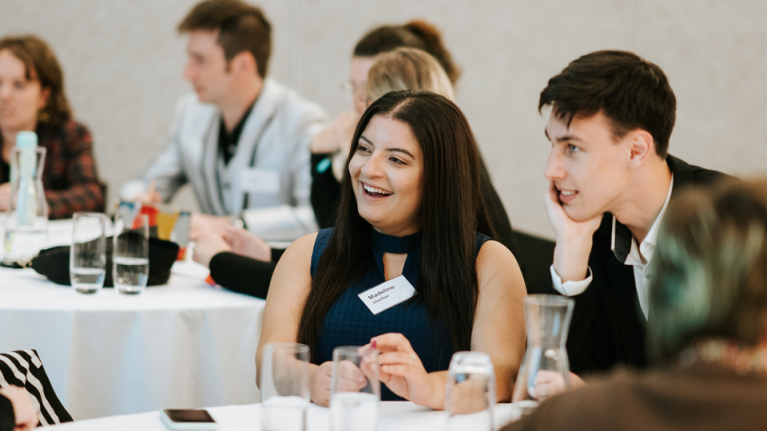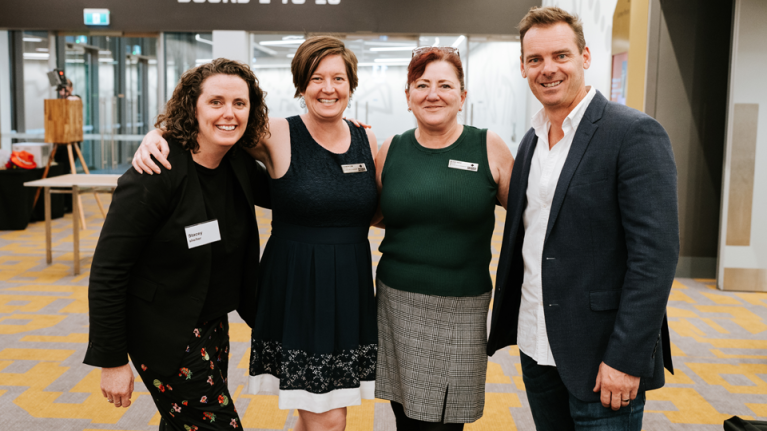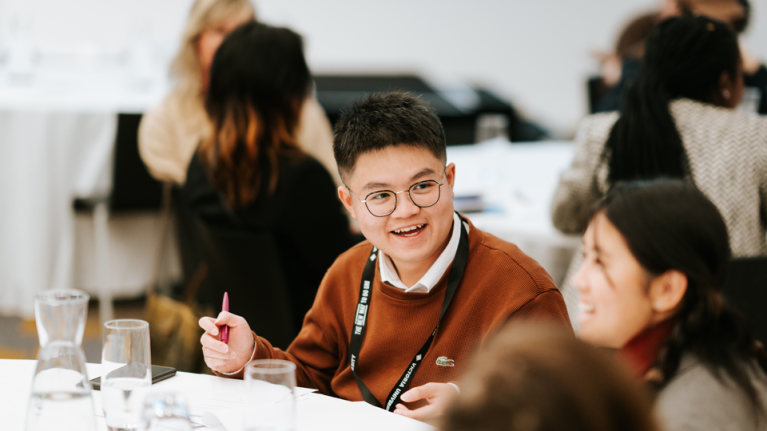4 ways to build leadership skills – advice from Grill’d CEO Aaron Fitzgerald
Speaking at the 2023 VU Student Leadership Conference, Aaron Fitzgerald – Victoria University (VU) alumnus and Grill’d International CEO – encouraged students to “take opportunities when they arise and work at them as hard as you can.”
“It’s an honour to be invited back to speak as a Victoria University alumnus. I remember sitting in your seats and hearing from guest speakers. It was like they had this really clear pathway which made them successful. And a lot of it felt out of reach. So I want to be practical and hopefully clear about how you can progress your leadership journey.”
Aaron’s first job was working at a butcher’s shop when he was 13. “I cleaned dishes and worked with customers, and dealt with people who were much older than me. It taught me humility and a work ethic.”
During his studies at VU, Aaron worked part-time at a Village Cinema candy bar making popcorn. At the same time, he completed a work placement at the Village Cinemas support office, which led to a management program, post graduation.
Now CEO of an international company with more than 160 restaurants, Aaron sees customer service and empathy as key ingredients to the growth of Grill’d.
“As CEO I spent 12 weeks training in restaurant. Every member of the team starts out at the chip station, learns to make every burger by hand, and interacts with customers. It means we can empathise with our teams.”
He believes that “as a human-centred leader you must have discipline to drive cultures, values and behaviours as the way to drive performance as an organisation.”
So what is human-centred leadership? To Aaron, it’s “a decision and a conscious discipline that drives sustainable growth and performance of individuals, teams, organisations and communities.”
Aaron shares four practical ways for students to set themselves up as centred leaders in the years ahead.

1. Know your drivers, blockers & hidden assumptions
“The first step to being a human-centred leader is knowing yourself. That’s because one of the most important tasks you have as a leader is helping others know themselves – their drives and blockers – so that they can grow and progress.
We can often think that we need to interject and offer solutions when talking to people. But providing space and leaving gaps, listening more than talking – is really important.
We all have behaviours and beliefs that both help and hinder us. For me, really early memories of athletics – winning a race and what that felt like – created a strong desire to win, which has driven and held me back in equal measure.
I wasn’t taking enough educated risks. Understanding my immunity to change was a massive breakthrough. It took me from being a manager to a leader.
Ask yourself, what is a moment that drives me? Why does that drive me? What are the fears associated with this? Then, when you find you are blocking yourself, with hidden competing commitments, you can do something to change it.”

2. Have the most important words ready
“The most important words you’ll hear in your life are the ones you say to yourself about yourself.
Tennis champion Ash Barty realised in 2021 that the words she was saying to herself on court were part of what was preventing her from making a breakthrough win.
When matches got to the crunch, her internal dialogue was letting her down.
Going into the 2022 Australian Open – which she went on to win – Ash developed a three-word, positive mantra.
‘Accept, celebrate and focus.’
Meaning ‘accept the things you can’t control, celebrate the journey and the opportunities you’ve created for yourself, and focus on what you can control.’
It’s a pretty simple technique and it’s used by some of the greatest athletes. Are you making your words healthy, constructive and centred? What could be your words of tomorrow?”

3. Find a pathway to your ‘why’
“My why is family. That is why I wake up each morning. My work-why is to give others the opportunities that I was given.
Your ‘why’ isn’t always just there, you need to find it. Success means a lot of different things to different people: health, happiness, money, love, sport.
To get closer to discovering what drives you and your individual meaning of success, some helpful prompts are: what do you want to be known for? How do you want to present yourself? Who do you look up to?
For me, it’s about goal setting. When you start to goal set that becomes the big picture that you aim for. Then you can think about what you want to achieve in the next six months and break it down to constructive behaviours in support of your goals.”

4. Be disciplined about your goals & giving back to your supporters
“Your team of supporters are the people in your life that you can count on, that want you to succeed. They are probably your closest family and friends.
It’s important to really think about who these people are and then think, ‘what is my commitment to those people over the next six months and year ahead?’
To set yourself up to achieve your goals, it helps to develop a weekly rhythm that allows for everything that’s important to you: your supporters, career, study, relaxation.
And most importantly, take all opportunities to lead and learn.”